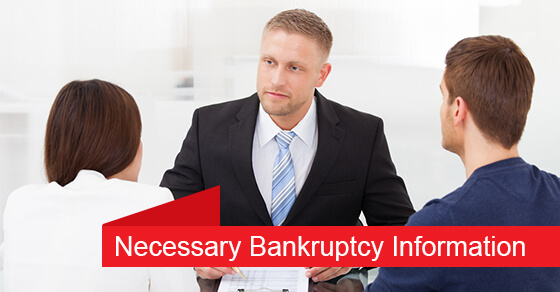Many people believe that bankruptcy is the best solution for their money woes, but there are a variety of options a person in debt can explore. Bankruptcy will stay on your credit record for several years following your completion and can initially make it significantly harder to get credit until you have restored your lender’s confidence.
For this reason, it is best not to take bankruptcy lightly: You should only declare bankruptcy once you have exhausted all of your other options and have spoken to a trusted, experienced bankruptcy trustee. They are the only people who will know best how to deal with your individual situation, no matter what that situation may be.
How to File
Even if bankruptcy is your only remaining option, it is important to understand what the process will entail and what will be required of you.
When filing, you will be required to provide a thorough explanation of how you ended up accruing so much debt. You will also be required to provide a complete list of your assets and debts.
Assets fall into two distinct categories:
Exempt assets include items such as: a basic car, and personal items, household goods, and tools of your trade. These items and assets cannot be sold in order to pay off your debts. For more information you care read our Blog called “_____________________”
Non-exempt assets have a value that the government rules on bankruptcy say should be realized to pay some money to your creditors. This may apply to some investments, house equity, and other items.
Debts also fall into two categories:
Secured debts are debts which are guaranteed to the creditor by the use of some sort of collateral. This may include a home, car, investment, or boat. You can retain these debts and the items they are secured to or if you are unable to pay them they can be included in the bankruptcy but the secured item will have to be surrendered.
Unsecured debts are debts which do not have collateral riding on them. This generally includes credit card debts, medical bills, and personal loans.
If you are considering bankruptcy, speak to an expert before you make any decisions to ensure you’re making the best financial option possible. If you have not yet consulted a trustee they can be very helpful in reviewing all of your various issues and helping you understand your options.
Source: http://www.investopedia.com/articles/pf/07/bankruptcy.asp

